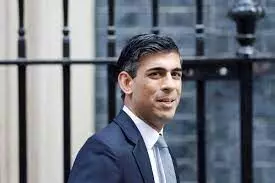
When disaster comes at doorstep, nations look the other way
text_fieldsIt is a suicidal spectacle that national leaderships remain indifferent in the face of impending disaster, with our blindness to the rapidly approaching climate catastrophe making up a human race that has experienced it first hand and still is not even alert or aware of that danger is suicidal. Reports coming out ahead of the climate summit (COP 27) to be held in Sharm El Sheikh, Egypt from November 7 to 18 under the auspices of the UN do not bode well. The 2015 Paris Summit (COP 21) decided to limit global warming to 1.5°C above pre-industrial levels. It was also found that the ceiling of 1.5 degrees cannot be compromised because if it is not complied with, the Earth will sink into irreversible destruction. However, the results of recent studies released by three UN agencies indicate that this inviolable limit also run the risk of being breached. The U.N. Environment Agency says it is on the way to exceeding 1.5 degrees and may reach 2.8 degrees by the end of the century. Even if the targets set at COP 21 and renewed at COP 26 in Glasgow last year are fulfilled, the rise in temperature will exceed 2.5 degrees. Those goals, however, are nowhere near being fulfilled the way nations are moving now. The UN Framework Convention report also confirms that countries have not even come close to the goals they committed themselves to in Glasgow. The World Meteorological Organization's study found that emissions of all three greenhouse gases (nitrous oxide, carbon dioxide and methane) that cause the heat in the atmosphere are increasing and reached a record level in 2021.
Many other reports also give the same hazard signals. The extreme heat, drought, floods and storms experienced by the world last year are a precursor to what is to come. UN Secretary-General Guterres also has bluntly said that if stringent action is not taken quickly, the result will be disastrous. Despite such constant reminders of science and experience, leaders of nations are guilty of criminal negligence. Europe has experienced the greatest heat in history this year. But at the same time when science warns that temperatures are only going to get hotter and that this will be the least warm year in our lifetime, many countries are increasing their consumption of pollutant fossil fuels. Western oil companies are reaping huge profits. At the same time, millions of people in poor countries are becoming refugees due to climate disasters. East Africa is starving. The World Bank has warned that 19 percent of the Earth will become uninhabitable in the next 50 years due to extreme heat and drought. Figures also indicate that the longer the delay in finding a solution, the greater the economic losses for the entire world (especially the poor).
Since greater suffering and loss are on the poor countries that have caused the least amount of pollution and not the rich countries that are more responsible for pollution, the core of the solution lies in climate justice. Of the loss suffered due to climate disaster between 1992 and 2013 - which may go up to 30 lakh crore dollar - the brunt of the burden was on the shoulders of the poor countries. Yet the rich countries have not handed over even half of the sums they had pledged to give as compensation and mandatory aid. It is this situation that makes COP 27 particularly significant. But many world leaders are not seized of the gravity of this problem. An example is British Prime Minister Rishi Sunak, who while taking office said that he would give prime consideration to the environment. But not only is he not going to attend Cop 27 missing his first chance to prove his commitment, but reports even indicate that he has also informed the eco-friendly King Charles that he need not attend.
The crisis of the earth can only be reversed through a collective effort. Even as the UN and the scientific community take the lead, the nations of the world are abdicating unity and choosing the path of conflict. More than half of children on earth today (56 crore) are doomed to struggle with unbearable heat waves. UNICEF warns that by 2050, 202 crore children in all will be in that condition. The older generation of today needs to show more responsibility at least keeping this child population in mind. There is a slight hope today in the development of clean alternative energy sources. If the fuel crisis in the wake of the war in Ukraine would be a catalyst for a shift to alternative energy, that would do good. At the same time, even at this point where unity is essential, the narrow-mindedness and bellicosity of nation-states will hold back even remedial efforts on climate. In short, the success of the upcoming climate summit in Egypt depends on climate justice and maturity of world leaders. Humanity can ill afford to let it fail.


























